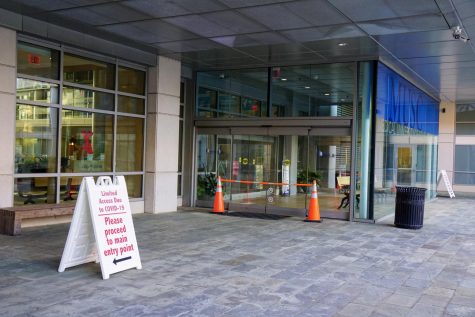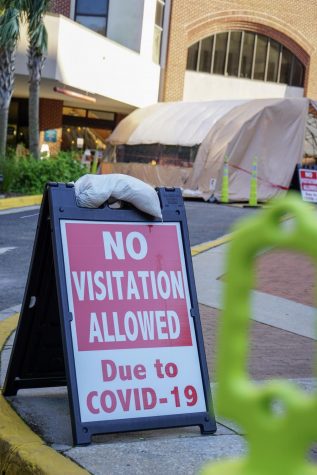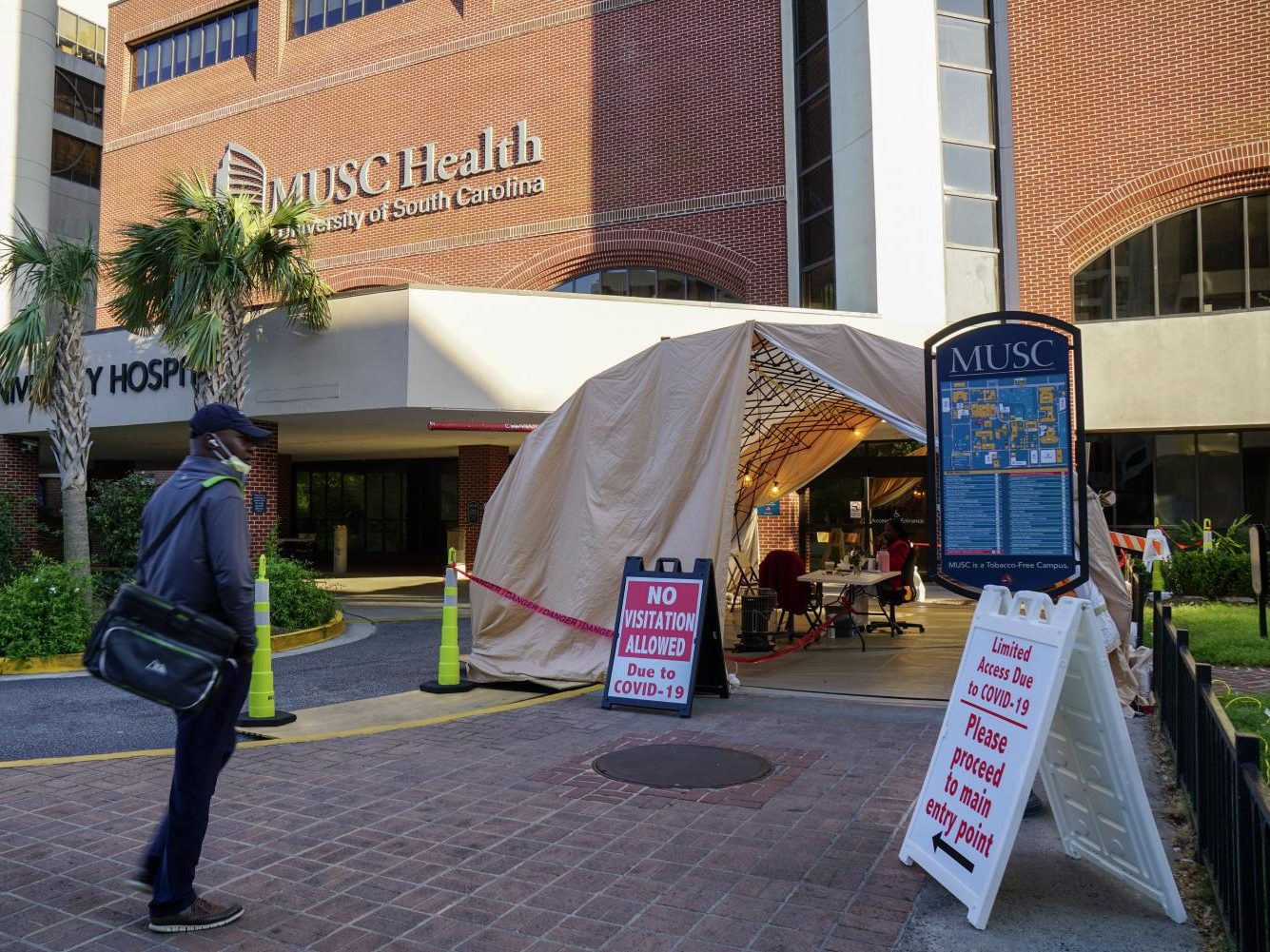The Medical University of South Carolina tackles coronavirus in Charleston
April 2, 2020
The news anchor droned on from the TV. She talked about the weather, politics and something called the coronavirus. As the weeks went on, that new word became more and more popular. What started as a meaningless news report was becoming an all too real threat. Talks about closing schools and businesses that once seemed far fetched were now becoming a reality. As the virus continued to spread, more and more of the world seemed to become engulfed in isolation.
Even though the coronavirus has taken the world by storm, hospitals like the Medical University of South Carolina, MUSC, have been working on ways to return society back to normal.

Entryways into the Ashley River Tower were barricaded by cones and nearby campus security on March 2. A checkpoint was set up nearby in which workers could enter through.
“When this [coronavirus] started to come onto the scene, when we really first started hearing about it, talking about it, having meetings about it in late December, early January, we could see that things… had the potential to really start ramping up,” said Heather Woolwine, director of Public Affairs, Media Relations and Presidential Communications for MUSC. “MUSC has been very fortunate as we have a very forward-thinking group of leaders who when a problem looks like it’s coming on the horizon, they’re working really hard to determine what sort of innovative ways can we approach this problem.”
To tackle a problem as large as a pandemic, MUSC’s whole staff has come together as one united force. From doctors to professors, everyone has combined their expertise in order to discover the best possible solutions, Woolwine said.
“I mean these are very very smart, compassionate, just wonderful people who have devoted their lives, and this is whether you’re talking about the teaching aspect, the research aspect or the patient care aspect of what we do,” she said. “They’ve devoted their lives to doing that to the best of their ability, and I think [they have] a lot of confidence in how they’re…. thinking through the potential outcomes of all of the possibilities.”
According to Woolwine, there has been stress and anxiety involved as the hospital works out how to balance all of the social and economic issues that have arisen with the virus, but they are working through the problems as a team.
“There is that pervasive sense of, ‘We’re going to get through this. We’ve been through tough things before. We will get through this too, and we will do it to the best of our ability,’” Woolwine said.
Woolwine explained that in order to fight off the coronavirus, the healthcare system and everyday people need to do their part.
“We’ve got to find a way to strike a balance between everything that we need to sacrifice and do in order to flatten the curve but not so much so that we create any number of other long term economic and social consequences that sort of destroy everything that we’re trying to protect at the same time,” she said.
12:14 “I often tell people, ‘Keep your eye on the action that is being asked of you. What are you being asked to do?’ and that message has been very, very consistent I think through local leadership, state level leadership,” Woolwine added. “– that’s limit your movement, practice good hygiene, if it’s not necessary to go somewhere don’t go there, find other ways and alternatives to stay connected to people through technology.”

A sign reading “No visitation allowed due to COVID-19” sits outside of the horseshoe at MUSC’s Main Campus hospital.
In a world of social media where anyone can voice their opinion, Woolwine stressed the importance of finding reliable sources of information to get proper facts.
“I think there are a lot of really great resources. You can find them through the musc.edu or muschealth.org website, connectivity to information that I think can help allay a lot of fears,” she said. “One of the issues right now is the blessing and the curse of the internet. [With] social media sometimes it can be really really hard to know what’s real and what’s not.”
Times might seem dark and dismal with shutdowns, closures and constantly increasing virus totals, but Woolwine hopes this pandemic will help the world grow stronger moving forward.
“I hope that we as a collective society are taking lots of notes right now about how to do better going forward, and I truly do feel that we have that capability,” she said.
“I think that learning how to deal with adversity, learning how to be flexible when things don’t go your way is always an excellent life lesson,” Woolwine added, “and you guys [high school students] are getting it in real time, and it’s going to make you stronger, better smarter individuals for it.”
